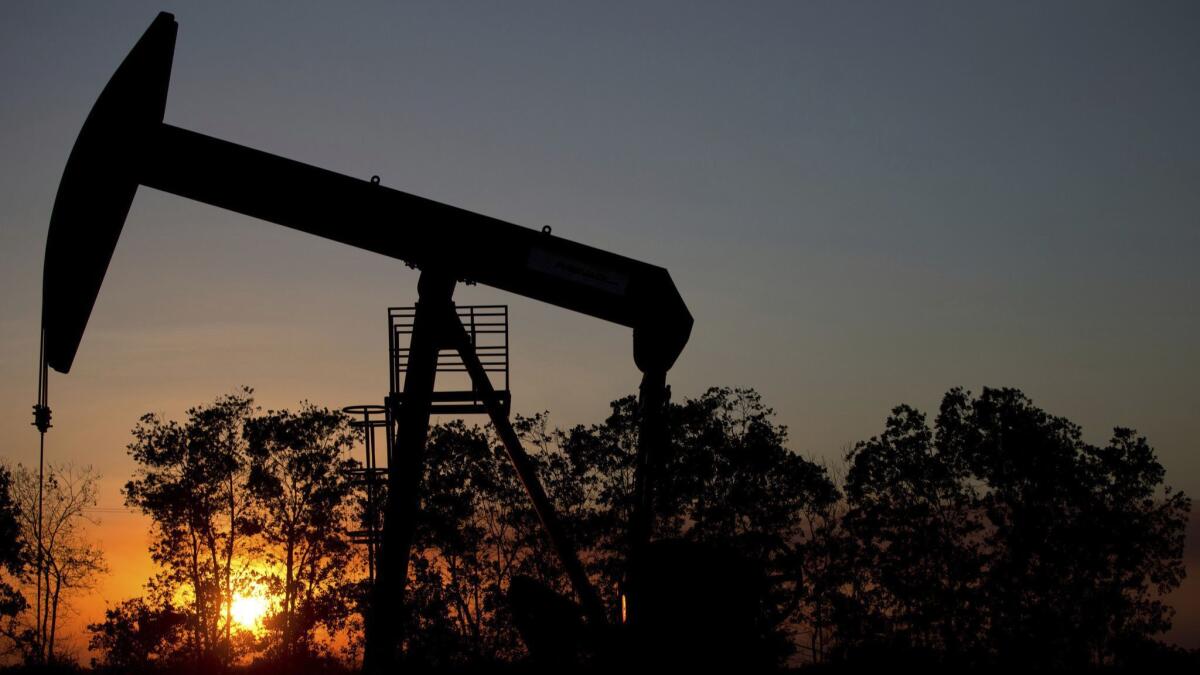Trump ready to end Chevron’s access to oil from Venezuela

- Share via
The Trump administration is ready to unleash the full effect of sanctions on Chevron Corp.’s operations in Venezuela as the U.S. seeks to further squeeze President Nicolas Maduro‘s regime.
Although no decision has been made, it’s increasingly unlikely that the U.S. will renew Chevron’s sanctions waiver to access Venezuela’s crude reserves, people familiar with the matter said.
The Treasury Department last month granted Chevron its fourth waiver since sanctions were announced in late 2018. When that expires April 22, it probably won’t be renewed, the people said, speaking on the condition of anonymity because they weren’t authorized to discuss the matter publicly.
Such a decision would mark the unraveling of Chevron’s near-century of operations in the home of the world’s largest oil reserves. Venezuela has figured prominently in company lore since Chevron’s discovery of the giant Boscan field in the 1940s. Even after rivals such as Exxon Mobil Corp. abandoned the country during the reign of the late Hugo Chavez, Chevron held on.
The Trump administration recently ramped up efforts to oust Maduro and rally international support behind opposition leader Juan Guaido. This month, Washington sanctioned a unit of Russia’s largest oil producer, Rosneft, for maintaining ties with Maduro and state-run oil company PDVSA.
A spokeswoman for the Treasury Department, which oversees sanctions implementation, did not immediately reply to a request for comment.
Chevron is hopeful the waiver “will be renewed so that we can continue operations in the country for the long term,” Ray Fohr, a company spokesman, said in an email. “If Chevron is forced to leave Venezuela, non-U.S. companies will fill the void and oil production will continue.”
Chevron’s Venezuelan oil production plunged to just 35,000 barrels a day last year, a 20% drop from 2018, and only about 1% of the company’s global crude output.
Proponents of Chevron’s position argued that withdrawing would open the way for Russian and Chinese companies to expand their footprints and control more crude, and make any post-Maduro rebuild of the economy more difficult.
More to Read
Inside the business of entertainment
The Wide Shot brings you news, analysis and insights on everything from streaming wars to production — and what it all means for the future.
You may occasionally receive promotional content from the Los Angeles Times.










